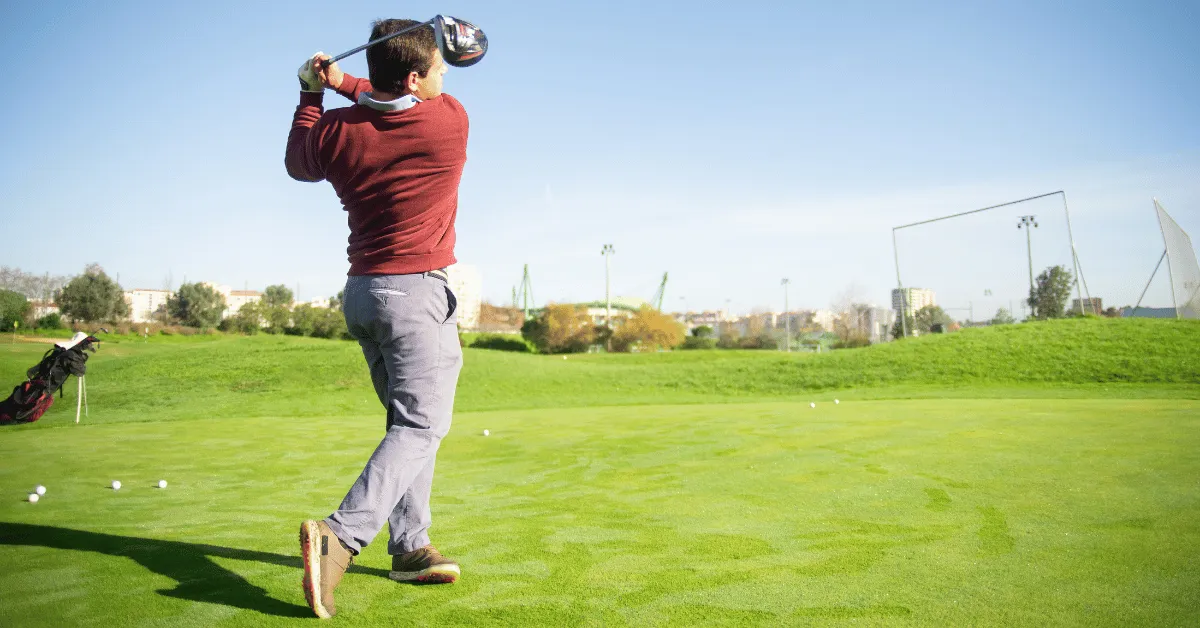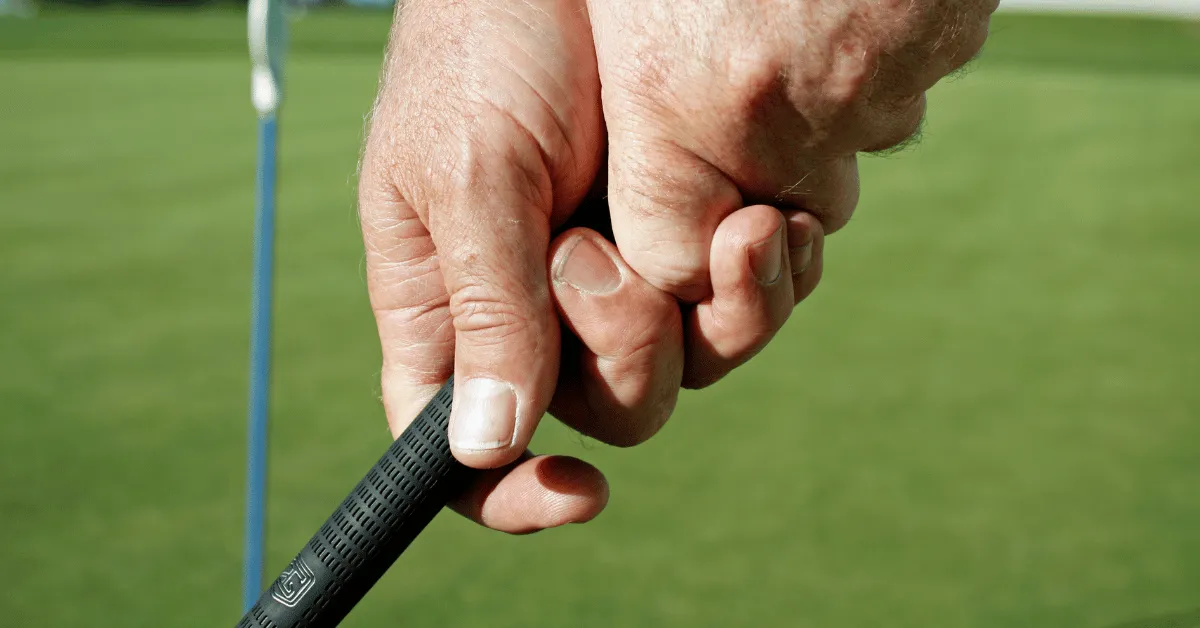Ever been on a golf course and had a ball whiz past your head? It’s a scary moment that most golfers have faced at some point. Right?
Shots fired recklessly are not just irritating, they are dangerous and trigger aggressive conflicts, on the golf course. You’re always alert on busy days, watching for stray balls from other fairways.
But golfers are a clever bunch. Long ago, they introduced an easy and effective way of letting others know about danger. Fore has little to do with safety but much to do with etiquette.
As an avid golfer, I’ve seen this warning save the day more times than I can count. Looking forward to uncovering the story behind this warning.
Master how to apply it to your practice, and comprehend why this phrase is more relevant than ever in modern golf. Let’s tee off!
What is Fore?
Have you ever thought about why golfers shout Fore instead of ‘Be careful!’ or ‘Look out!’ This rather curious term has a long history that is as fascinating as the game.
Simply put, fore is imperative, meaning “look out!” It is what golfers say when their ball may end up hitting someone. Nevertheless, the origin of this word seems to be quite inspiring.
Most people think the word fore originated from the word forecaddie. In the 1700s and 1800s, forecaddies stood where the balls might go.
Golf balls were costly in those days and therefore, its search was crucial. Golfers would shout Forecaddie! to alert these ball-finders. Eventually, this long word was shortened to fore only and people started using it.
But another cool story is about the word fore. It is a story involving a man called John Knox, who existed in the 1500s.
He said they used to hear the soldiers shout Ware before! which meant Look out before! just before they fired their cannons. Some people believed that the golfers could have borrowed this idea.
Regardless of its origin, fore has been a part of golf for decades. It is not only a caution – it reveals how golfers care for each other.
Whenever you hear fore, it means that golf is a game where people are concerned with the safety of fellow players.
When to Yell Fore?
Knowing when to yell fore is as crucial as how to swing a club. But don’t worry – it’s not complicated.
First and foremost, shout fore whenever you think your ball will strike anyone. This comprises shots that are a little off to the side, shots over trees to another fairway, or shots that roll fast to other players.
If there is indeed the smallest possibility of your ball being able to reach a different person, then it is safer to scream than to remain mute.
Here are some specific situations when you should yell fore:
- If your drive goes left or right toward another fairway
- If you are going over a blind hill and cannot see if there is anyone in front
- If your approach shot goes beyond the green
- If your ball bounces off a tree or cart path in an unexpected direction
If you are about to hit your ball in the direction of other players, ensure you shout fore. Don’t wait to see where it lands – by then, it could be too late.
When you do shout fore, do it loudly and clearly. Put your hands to your mouth and speak as loudly as you can. If you know how the ball is going, you can add that too, like fore right or fore left.
Do not be shy to scream fore. Everybody does it, even the professionals. It is much preferable to shout and see the ball land safely than to remain silent and possibly injure someone. You should always bear in mind that safety is paramount in golf. So when in doubt, shout it out!
Check Out: What Is A Scramble In Golf And How To Master This Team Game
Responding to Fore
Hearing someone yell fore on the golf course can be startling, but knowing how to react could save you from a nasty bump or bruise.
First things first: don’t look up! One might think that it is possible to aim at the ball flying toward the golfer, but this is one of the biggest mistakes of golfing. With your head and face up and uncovered, you are open to the impact of a powerful golf ball traveling at high speed.
Instead, here’s what you should do:
- Duck and cover: When someone says fore, quickly lower yourself to the ground and place your arms over your head. This position shields your highly vulnerable areas.
- Seek shelter: If you are close to a tree, a golf cart, or any other hard object, try to take your position behind it for optimum protection.
- Stay put: Do not attempt to run or move around the ball. The golf balls move very fast, so your only option in a sacrosanct place enables you to avoid the impacts.
- Wait it out: It is always important to remain in a defensive posture for some time after you hear the sound of the ball hitting the ground. Occasionally, the balls bounce off trees or take other funny directions.
Bear in mind that a golf ball can travel at a speed of more than 150 mph. Even a slight impact can cause a serious offense at that velocity. This is why acting fast and ensuring optimal shielding of oneself is important.
When playing with others, especially with new players, it will be advisable to raise the matter of the right response to the fore during the preliminary briefing. This way, all persons involved will know how to act in the event of an errant shot.
Finally, do not curse at the golfer who made the terrible shot. Everyone gets it wrong sometimes in golf and that player was courteous enough to let you know. Just giving a sign that you are fine is often sufficient; all you have to do is wave.
By learning the correct response for fore, you are safeguarding your safety and the applicability and fun of golfing for everyone on the course. So remember: To duck, cover, and stay safe out there!
Conclusion
In conclusion, the word fore is one of the most significant words in golf. It is not just a funny word, but an essential precaution that allows the sport to remain interesting and safe for all participants.
Looking at the fore’s contextual and historical meaning, the term reflects the culture and spirit of the golf game.
Whether this is your first time or you are a regular golfer, knowing when to shout fore and what to do if you hear this word is important.
FAQ’s
What does “Fore” mean in golf?
Fore is a warning shout used in golf to let others know that a ball may be headed their way. It’s like saying “Watch out!” so people can protect themselves if a shot goes off course.
Why do golfers shout “Fore”?
Golf balls can travel very fast and may go in unexpected directions. When a shot looks like it could reach other players, caddies, or spectators, golfers shout Fore to alert them and help avoid injuries.
Where did the term “Fore” come from?
The exact origin isn’t certain, but many believe it comes from the old golf term “forecaddie” — a person who stood down the fairway to spot where balls landed. Players used to shout “forecaddie!” to warn them, which eventually got shortened to just Fore.
What happens if you don’t yell “Fore” in golf?
Yelling Fore is not just good golf etiquette it’s also about protecting yourself from liability. If your shot goes off target and hits someone, failing to warn them can make you personally responsible for the injury.
Why do people yell “mashed potatoes” at golf?
People yell mashed potatoes at golf events as a joke, not for any golfing reason. It started as a funny, random phrase shouted by spectators after a long drive, mainly because it’s loud, harmless, and easy to hear.





0 Comments